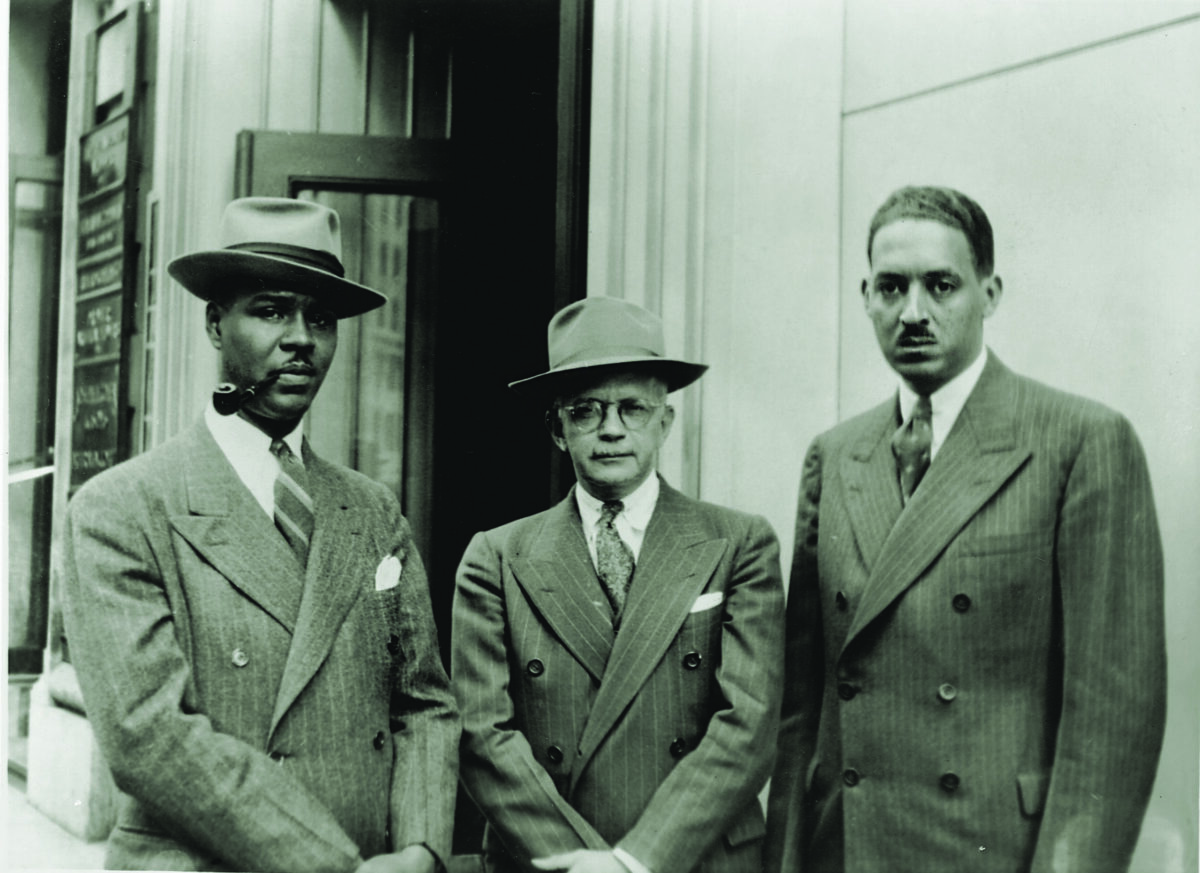On the surface, the 1941 Oklahoma case was a painful shellacking, but it shocked the country and jumpstarted the civil rights movement
The 1997 film Amistad chronicles a historic episode in which an American court tried kidnapped Africans for hijacking the ship hauling them to bondage. In it, an actor playing white antislavery activist Lewis Tappan suggests a wrongful conviction would suit the abolitionist cause more than an acquittal. A colleague decries Tappan’s eagerness to martyr innocents, but the fact is that instances of grave injustice often serve as catalysts for reform.
Thus, “Conviction:” The Murder Trial That Powered Thurgood Marshall’s Fight For Civil Rights,” by Denver Nicks and John Nicks, Lawrence Hill Books, 2019, $27.89, tells the story of how one of the future Supreme Court justice’s few courtroom failures helped dismantle American racism. In trying Marshall’s client William Lyons, convicted in 1941 of a heinous triple murder, Oklahoma authorities so abused justice that a community drenched in racial bias came to support an African American man wrongly accused. An appeal to the U.S. Supreme Court accomplished nothing. The justices distinguished between confessions made as a suspect was being beaten and those made hours after the beating had ceased, ruling that while the former were coerced the latter were not, even if the prisoner confessed out of fear that violence might resume. Marshall prevented a capital sentence. Lyons was paroled after doing 20 years and in time received a legal pardon for his “crime.” However, his conviction never was formally voided. Father and son John and Denver Nicks compellingly recount this underappreciated sequence of events in Conviction.
Elmer and Anna Marie Rogers and four-year-old son Elvie of Fort Towson, Oklahoma, died on New Year’s Eve 1939 by shotgun and arson. The killer or killers likely came from a nearby state work camp so ill-run—inmates were allowed to leave the grounds unsupervised—that Fort Towson residents had been complaining about the camp for years.
An embarrassed Oklahoma Governor Leon Philips assigned the official inquiry to special investigator Vernon Cheatwood. Cheatwood suppressed evidence, bragged about giving the third degree, and led police officers in blackjacking sharecropper Lyons, a known petty thief, into confessing. Given the era’s and the region’s prejudices, the state’s case might have gone smoothly even with the brilliant Marshall for the defense.
However, so blatant was the prosecutorial crookedness that even staunch segregationists were thrilled by Marshall’s relentless exposé of racist authoritarian duplicity—a performance whose power attracted considerable attention and money to his courtroom campaign against racism.—James Baresel is a freelance writer living in Front Royal, Virginia.





